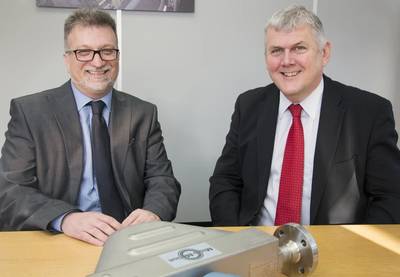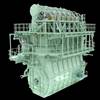UK-based Royston Diesel Power has secured funding support from Innovate UK, the UK’s innovation agency, for its flagship $2.2 million Managing Energy on Marine Vessels technology program.
The program aims to develop a new system for whole-vessel energy monitoring and usage, ensuring on board systems are operating at optimum performance and within environmental best practice.
The project is being conducted in collaboration with Newcastle University’s School of Marine Science & Technology and is focused on producing a system for the complete understanding of the complex energy flows around a vessel.
Energy usage and consumption on vessels will be measured through a physical monitoring system integrated with dedicated software and the development of new products and services to aid vessel efficiency.
The three-year project will initially focus on developing a system examining total energy flows and vessel energy architecture for smaller vessels, then for progressively larger vessels provided by maritime and shipping companies Svitzer, Topaz and CalMac Ferries, who are collaborative partners on the project.
The ultimate goal is to reduce the environmental impact of shipping and maritime activities, such as the reduction of CO₂ emissions and poisonous air pollutants both when the vessel is at sea, and mitigating the effect on near-by communities when the vessel is in port.
The system will also focus on the prevention of catastrophic faults and failures through early warning diagnostics. It is predicted that the proposed whole-vessel system will generate considerable financial reward to end-users from efficiency savings and reduced ‘port dues’ for ships demonstrating compliance towards reduced energy consumption.
The need for a whole-vessel monitoring system is driven by environmental legislation produced by the European Union and the International Maritime Organisation (IMO). Since 1973, the IMO has adopted and refined the International Convention for the Prevention of Pollution from Ships, known as MARPOL. Since 2011, this legislation has been expanded to include a package of measures for mandatory technical and operational measures to reduce emissions from international shipping.
The MARPOL legislation and the debate within the IMO regarding Monitoring, Reporting and Verification (MRV) on what future systems can aid the development of efficient energy usage and environmental regulations has given increased impetus for shipping and marine operators to improve the energy efficiency of vessels, through new design and propulsion technologies and improved operational practices.














